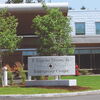Maine businesses that seat customers have 9 p.m. curfew for next two weeks
 Photo / Fred Field
Restuarants and any other businesses that seat customers, whether indoors or outdoors, will have to close at 9 through Dec. 6 in an effort to slow the state's quickly rising COVID-19 rate, Gov. Janet Mills announced.
Photo / Fred Field
Restuarants and any other businesses that seat customers, whether indoors or outdoors, will have to close at 9 through Dec. 6 in an effort to slow the state's quickly rising COVID-19 rate, Gov. Janet Mills announced.
Businesses that seat customers will have to close at 9 p.m., starting Friday, under new restrictions designed to curb the "alarming increase" in COVID-19 across Maine, Gov. Janet Mills announced Thursday.
The early closing is for amusement venues, movie theaters, performing arts venues, casinos and businesses that provide seated food and drink service, including social clubs, restaurants and bars and tasting rooms, whether their seating is indoors or outdoors.
The curfew lasts through Sunday, Dec. 6, and is designed to limit the amount of social gatherings in a time of year known for family visits and get-togethers with friends.
The Mills administration is also working with the state attorney general’s office to provide guidance to businesses on public health requirements and the state's right to enforce them in order to protect the health of customers and staff. Once the guidance is issued, it will be released publicly, a news release said.
The move to close businesses early each night is similar to what other states in the Northeast are doing, including Massachusetts, Rhode Island, Vermont and New York.
Mills said the state is "entering a new and dangerous phase of the pandemic."
“Since the beginning of this pandemic, we have been performing a balancing act, basing our decisions on science and medical expertise, weighing the safety of reopening with the necessity of getting back to business," she said in the release. "This targeted and temporary step will reduce extended gatherings while keeping the businesses open."
When the state's transmission started to rise in October, Mills said that total business shutdown is less effective than people wearing masks, limiting interaction with other people and washing their hands. She stressed that in Thursday's announcement.
"I ask all Maine people, please wear your face covering, wash your hands, watch your distance and avoid hosting or attending gatherings with friends and loved ones unless it is absolutely necessary," Mills said. "Returning to normal life sometime next year first requires us to survive the holidays this year.”
Mills said other steps may be necessary in the coming weeks if the virus outbreak doesn't come under control.
Sharp rise in positivity, hospitalizations
Maine's positivity rate — the rate of positive tests among those tested — has risen from 0.42% a month ago, and 0.75% when Mills urged greater attention across the state, to 2.66% Thursday.
There were 16 people hospitalized with COVID-19 on Oct. 28, when Mills said "things can get worse fast." On Thursday, there were 88 people hospitalized with COVID-19 in Maine.
State and health officials have said they're concerned about the strain on hospitals, both for patients who've contracted the virus and need special care and settings, and for those who have other medical issues who may not be able to access the care they need if hospitals become overwhelmed.
The checklists that outline public health and safety requirements have also been updated for indoor and outdoor amusement, movie theaters, performing art venues, casinos and any business that offers seated food and drink service.
The Mills administration is making $100,000 in coronavirus relief money available to extend the Keep Maine Healthy public awareness campaign to January. The campaign was launched in June to encourage state residents to comply with public health and safety measures that limit the spread of COVID-19.
'It's up to the people of Maine'
The message from state and health officials Thursday was clear — controlling the spread, which has reached to all corners of the state, is largely up to individuals following public safety guidance.
DHHS Commissioner Jeanne Lambrew said that the course the pandemic takes in Maine "is up to the people of Maine."
"We know what works to limit the spread of this virus: wearing face coverings, avoiding gatherings, keeping distance, and washing our hands," she said. She said the Keep Maine Healthy campaign will remind help remind people of what they can do "to keep our loved ones and communities safe and healthy.”
Every part of Maine has community transmission, said Nirav Shah, director of the Maine Center for Disease Control and Prevention. “Each of us can help limit further spread of the virus by considering how our actions affect others. Extended gatherings provide an opportunity for the virus to infect others," he said. "At this time of year, those others are more likely to be loved ones. By adjusting or delaying our shared celebrations, we deny the virus that opportunity and demonstrate our respect and care for others.”
DHHS also announced Thursday that another 52 Walgreens pharmacies will begin offering free drive-through rapid COVID-19 antigen testing to anyone in the state with coronavirus symptoms. Three more Walgreens sites in southern Maine will begin offering antigen testing next week, bringing the total to 65 Walgreens sites throughout the state.
Mainebiz web partners
Enough of this draconian nonsense. Stand up to our reckless government! You can’t stop the spread of a respiratory virus. Period. The “cure” of state mandates and lockdowns has become worse than the disease itself. Maine businesses and its people have suffered enough already thanks to Governor Mills’ incompetence!














1 Comments